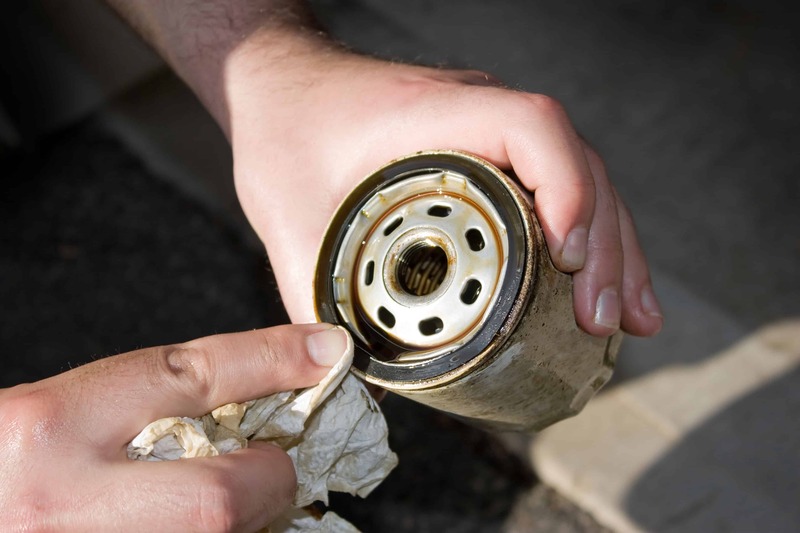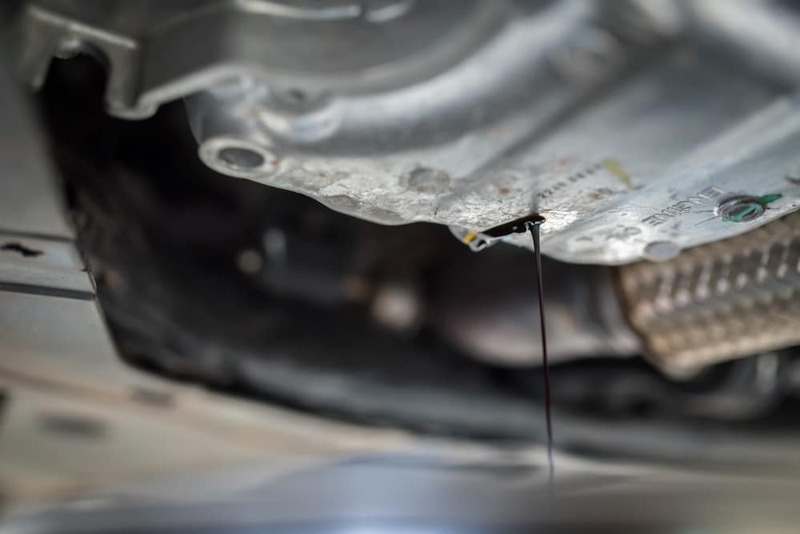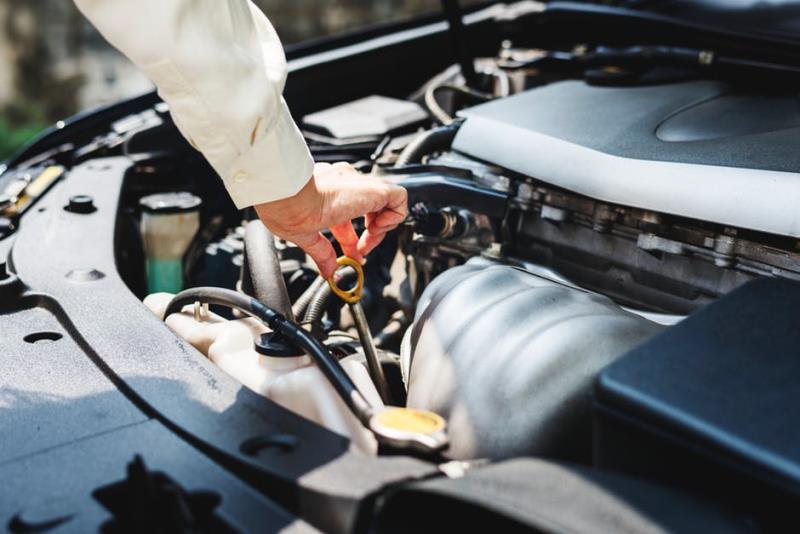Oil leaks are unsightly and may also be a sign of severe problems with the car’s engine.
It is almost okay to drive your car when you notice an oil leak, but it is always best to take it to the auto repair shop for a better diagnosis.
In this article, we’ll go over the most typical causes of car leaking and what to do if you notice this issue.
Let’s get started!
Why Is My Car Leaking Oil?
The common causes of oil leaks amongst others include leaks from the oil pan, improper or worn-out seals, or degraded engine gaskets. An oil leak also can result from a loose or missing oil pan drain plug or failing valve cover gaskets.
Going forward, we would examine some reasons you might be having an oil leak.
Your Drain plug Might be Worn-Out
From the under section of the car, the oil drain plug can be accessed at the base of the oil sump. The oil may leak due to a worn-out drain plug. Replace the oil drain plug or the sealing after every oil servicing. Most individuals, however, omit this step and reinstall the previous drain plug.
There May be Cracks in Your Cylinder Head
Oil can leak from an engine and possibly enter its cooling system if the engine block or cylinder head is cracked; Despite the rarity, if noticed, it should not be ignored. This crack may occur if the cooling system’s coolant freezes at some point due to insufficient coolant.
Your Oil Pan May Be Torn
At the base of an engine is where the oil pan is located. As debris strikes the pan’s bottom, resulting in dents, it will gradually become damaged over time, this can cause a car leaking oil issue.
The Leak Might be from the Pressure Sensors
The oil pressure sensor is at the cylinder head or the engine block. Since this sensory device is frequently made of plastic, it may eventually crack and cause a leak. Once you find it, it is often relatively simple and inexpensive to replace.

A Bad Oil Filter Might Be the Culprit
Sometimes the source of the leak is an oil filter that is malfunctioning or damaged. Please make sure the oil filter is securely fastened and free of any rust by inspecting it. However, changing to a new oil filter may be necessary because these can be challenging to change separately.
The Valve Cover Gasket may be Bad
The apex of an engine’s cylinder head houses the valve covers, which act to stop oil leaks as a seal. Due to high temperature and the reaction of rubbers hardening over time, causing oil to drip from openings, the valve cover gaskets tend to wear out over time.
It Might Result from a Spoilt Seal
Seals conceal the oil inside of the engine as they surround the crankshaft and the camshaft. As you might expect, the constant rotation of the crankshaft and camshaft can wear out the seals. The crankshaft has seals against the gearbox, behind the crankshaft pulley, and to the front of the engine.
Oil Leaks Can Come from the Oil Cooler
The oil cooler comes in two varieties; one that suites dry air cooling, which is frequently found up front. The air-cooled ones in the show can leak, so if you notice any oil leaks in front of the engine, they most likely originate from the engine oil cooler. Additionally, the oil coolant-cooled cooler is frequently found on the engine block since it often has seals opposite it. Oil-cooled-coolant types typically cause oil leaks.
Your Crankcase Ventilation Might Just be Clogged
The crankcase aeration ensures that the car’s compression won’t lead to an internal crankcase overpressure. A valve and hose take air into the intake manifold To ventilate the crankcase. Clogged crankcase ventilation can lead to engine overpressure, which is the main cause of a variety of oil leakages in a car as the oil tries to escape the engine.
Also Read: Oil Pan Replacement Cost

How to Identify a Car Leaking Oil Issue
Engine oil serves as a coolant working with a lubricant and oil filter. As it passes through each component, it cools the engine. The oil level falls when an oil leak and the cooling capacity decreases. Overheating of the engine may result from this.
Also, Oil spills are an oil leak’s most obvious sign. A splash or spill will appear under your car if it is leaking. Depending on the extent of the leak, you may notice a few drops or a tiny puddle.
Another notable indication of a car leaking oil is when the check engine oil light on your dashboard is ON or lit. It is the ideal indicator for oil leaks because it only turns up when the oil level is too low.
How to Fix a Car Leaking Oil
An oil leak must be located before it can be repaired. For your engine, it’s essential to determine the root cause agent for the leak. Carry out the following steps to know when to see a technician..
Step 1: Try to Keep track of the amounts to know how much oil the engine loses.
Step 2: After the engine has been off for at least 30 minutes, check your oil, giving it time to return to the pan.
Step 3: Eject the dipstick, clean it with a fresh rag, and reinstall it while the engine is off.
Step 4: Reading this level indicator requires another removal of the stick. Full or just a little below the top mark is acceptable. Anything below that will suggest that a top-up is needed.
Any oil leak must be fixed after discovering it, regardless of the cause. Take your car to the mechanic if you find oil leaking from your car when parked, oil on the engine, smoke or smell of burned oil, or notice oil levels dropping.
Also Read: Oil in Intake Manifold (Causes & How to fix)
Frequently Asked Questions – Why Is My Car Leaking Oil?
Can I operate a vehicle with an oil leak?
Theoretically, driving a car that is leaking oil is acceptable. Conversely, the oil keeps the engine lubricated and causes it to operate at peak efficiency, so it’s not a good idea. Because without it, the car’s engine will seize, costing you a lot of money to repair or replace.
How do I deal with an oil leak in my car?
Low oil levels can cause severe engine damage if a vehicle is operated. For these, it is best to stop driving the car when you notice it is dripping oil. Speak with a qualified mechanic immediately to fix the leak and mitigate further damage.
How much for fixing an oil leak?
Fixing an oil leak would cost about $100 to $2,000 or more. The cost of engine oil leak repairs is also significantly influenced by the brand and model of the vehicle you drive.
Conclusion – Why Is My Car Leaking Oil?
Many variables, including the leak location and size, affect how serious an oil leak is in a car. A significant oil leak amount will cause the oil levels to drop quickly and cause more severe issues.
The location of minor leaks is most important, as a leak from the timing cover will reduce the efficiency and usability of the timing belt or engine drive belts. In contrast, a leak from the valve cover gasket will get oil on the hot exhaust manifold, potentially igniting a fire.

